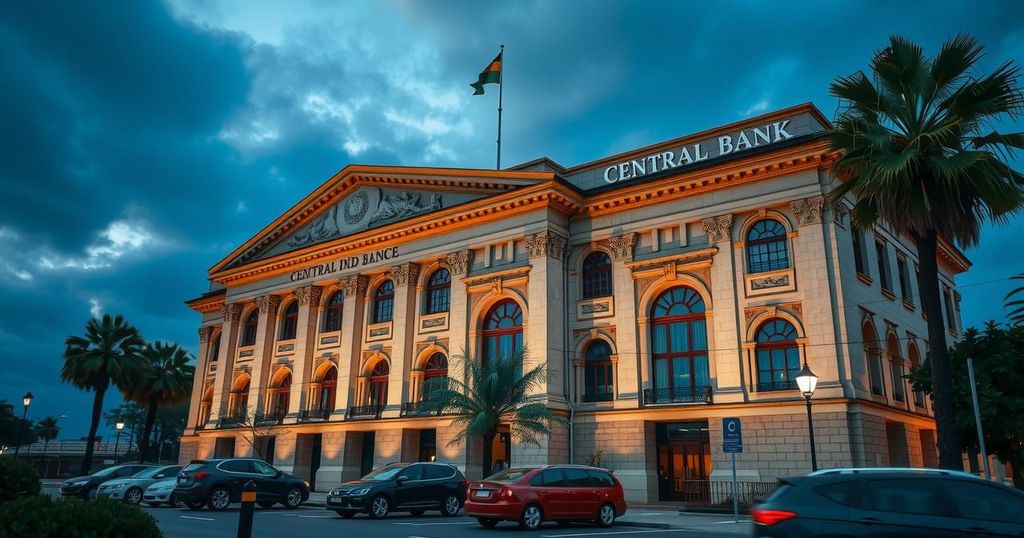The Role of the South African Reserve Bank in Addressing Climate Change Risks

Climate change poses significant economic risks, impacting the stability of financial systems. The South African Reserve Bank is addressing these challenges by ensuring financial institutions evaluate climate risks, studying the effects of climate on inflation, and promoting greener practices. Deputy Governor Fundi Tshazibana emphasizes the Bank’s indirect role in environmental sustainability, relating it to its mandate for price stability. The Bank continues to grasp the implications of these risks through thorough analysis and integration of climate factors into its financial frameworks, including sustainable investment practices.
The interconnectedness of climate change and economic stability presents significant challenges for financial systems worldwide. Central banks, tasked with maintaining stringent financial stability and low inflation, must adapt to climate-related risks that threaten these conditions. The South African Reserve Bank (SARB) adopts a multifaceted approach to tackle these challenges, ensuring financial institutions understand these risks, analyzing inflation impacts due to climate change, and leading by example through greener internal practices.
Fundi Tshazibana, deputy governor of the SARB, elucidates that while sustainable economic growth is paramount, the Bank’s mandate to protect currency value does not directly tackle climate impact. However, economic stability indirectly fosters investment in sustainability. The Reserve Bank’s mission implicitly encompasses climate-related concerns as they critically influence price stability and financial integrity.
Regarding institutional responsibilities, the Reserve Bank recognizes that while it can mitigate climate-related risks to economic stability, comprehensive climate policy remains outside its purview. It conducts extensive analyses of climatic impacts, evident from the 2023/24 stress tests on major insurance entities, which integrated climate risk components. This effort reflects a growing acknowledgment of environmental factors in managing monetary policy.
Furthermore, SARB has shown a commitment to investing in green bonds, aligning investment strategies with environmental sustainability. As South Africa’s ESG bond market matures, the Reserve Bank remains poised to adapt its investment strategies accordingly. Such initiatives contribute to the broader aim of integrating sustainable practices across the financial landscape, underscoring that the challenge of climate change requires a collaborative approach among various governmental and public institutions to yield significant, positive change.
The South African Reserve Bank operates within a landscape increasingly challenged by climate-related economic risks. Financial stability, characterized by manageable inflation and invulnerable financial institutions, is being tested by climate events such as droughts, fires, and floods. The Bank recognizes that while its constitutional mandate primarily focuses on price stability, climate issues directly influence economic factors that require attention and proactive measures. Thus, addressing these interdependencies has become imperative for the Reserve Bank to maintain its core functions effectively, especially as investments in sustainable practices need to be emphasized.
In conclusion, the South African Reserve Bank acknowledges the urgent need to address climate risks within the financial sector. By integrating these considerations into its strategies and analysis, it aims to enhance financial stability and inflation control while fostering a more sustainable economic environment. This holistic approach highlights the necessity for collaborative efforts across various governmental sectors to effectively combat the multifaceted challenges posed by climate change, ensuring a more resilient economy for the future.
Original Source: theconversation.com






